The picture of Putin's Russia that we are offered by Dutch media has fundamental gaps. Alongside the frauds and repression there are other developments taking place in Russia. Particularly underexposed in Dutch media are developments in Russian creative industries and independent journalism. For creative inspiration Russia is an excellent travel destination, says Slavist Ellen Rutten.
by Ellen Rutten
A random selection of Dutch news headlines illustrates what average Dutch news readers and watchers know about Russia. The Dutch news follower knows that present-day Russia is no unproblematic place to live, to put things very mildly. Readers of NRC or De Telegraaf, followers of sites like GeenStijl: these all know about the frightening geopolitical tensions between Russia and 'the West.' The same media consumers all know about the saddening frauds in the recent Duma elections. And they all know about the sombering speed with which the Kremlin currently introduces repression-inducing new laws.
Dutch media correctly highlight these and other geopolitical Russia-related developments; and not all, but quite some Dutch journalists do so in well-informed and subtle news reports.
But the picture of Putin's Russia that we are offered here has fundamental gaps. Because alongside the frauds and repression - and, ofcourse, intertwining with them - there are other developments taking place in Russia. These developments rarely to never make it to Dutch headlines, but we do need to track them if we want to grasp how contemporary Russia works.
Innovative energy
Particularly underexposed in Dutch media are developments in Russian creative industries and independent journalism (and by independent journalism I mean a much broader spectre than the hardcore oppositional, investigative media which do receive coverage in Dutch media). What are Russian creative professionals - journalists, writers, designers, artists - working on these days? Where do they share their work? And what does the contemporary institutional landscape of Russian arts, literature, and news but also lifestyle or literary journalism look like? Answers to these questions are hard to find in Dutch media at this moment, but we need them for a fleshed-out understanding of the public sphere in Putin's Russia.
I want to share some samples of what we might call 'nonofficial cultures' in Russia, but I also want to demonstrate why such labels as 'nonofficial' and 'underground' are not unproblematic labels for contemporary Russian cultural production.
First, the overview. In selecting these five initiatives, I did not stick to overly formal criteria: these places and projects are, in part, simply my personal favorites. But together, they do offer a representative peek into the festively innovative energy that Russia harbours today.
The last thing I want to do is offer a hagiographic, idealizing perspective, but this innovative power is something that merits attention, I think. Ever since the early 2000s, trips to Moscow and Petersburg have invariably served for me as intellectual and creative oxygenation - and I hear the same from Dutch friends who work in the domains of architecture, music, and the visual arts. For creative inspiration Russia really is an excellent travel destination at this moment, and when I say that I am not referring to onion domes and balalaikas.
Art
The first project on my list is Garage, a Moscow-based museum featuring exhibitions of leading contemporary artists from Russia and elsewhere. This generously oligarch-funded museum illustrates nicely, I think, to what extent Russian literary and artistic entreneurship, today, operate along transnational lines. The Garage directors and many of its employees are Russian, but the building is designed by the public pet of Dutch architecture, Rem Koolhaas, and native American Kate Fowle is chief curator.
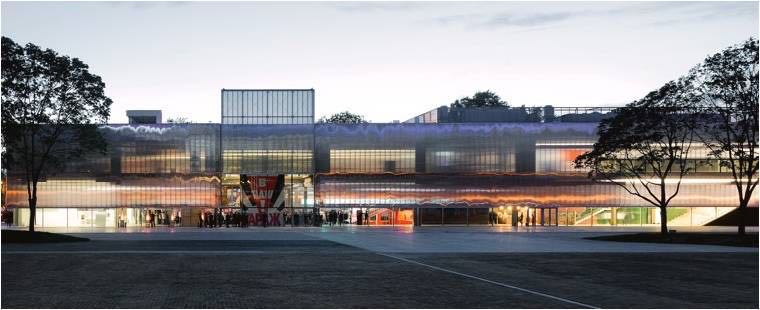
Fashion
The second item on my list is modeling agency Lumpen, an internationally renowned pioneer in the field of fashion and styling. It is to this agency - based in Moscow, with offices across Russia - that journals like Vogue and Vice turn to scrutinize a non-polished turn in fashion campaigns. Lumpen models are emphatically non-standard beauties and the agency is widely seen as pioneer in the field of ragtag or non-conventional modeling.
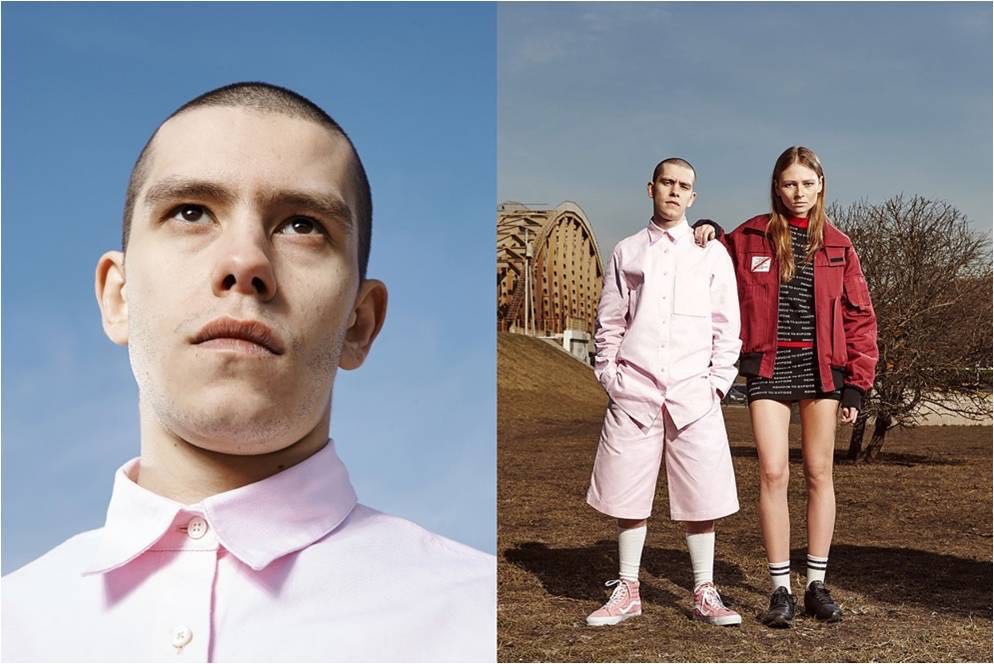
These first two examples stem from fashion and visual arts; my other three examples I extract from the domain of literature and journalism. With these examples, we gradually move from offline to online spheres.
Humanities
Number three on the list is The New Literary Observer (NLO). Under this title publisher and literary historian Irina Prokhorova runs no less than three periodicals and twenty book series. All scrutinize cutting-edge theoretical and methodological problems in the humanities, in philosophy and literary studies, for instance, but also in fashion and film theory.
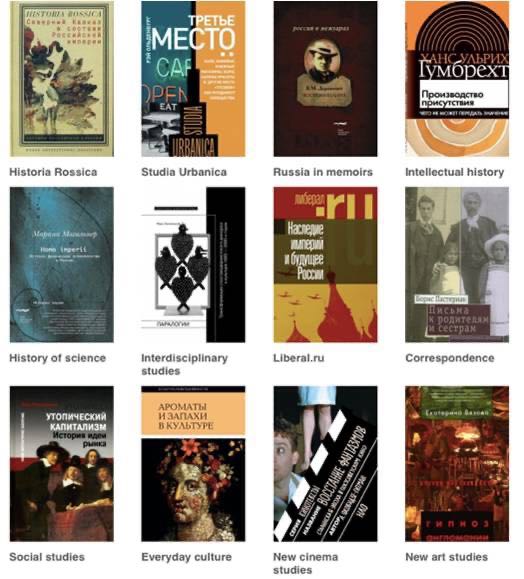
Now I know that academics today avidly overdose usage of the adjective 'cutting-edge' and some here will know, probably, that academics today avidly overdose usage of this term. For NLO's work, however, we can calmly, justifiably use it. In Russia, but also internationally, NLO ranks among the absolute top publication venues for innovation in the humanities.
Open access
NLO participates in another initiative in scholarly and literary publishing - one next to which Dutch-language open-access publishing pales. This is the online 'Journal Hall.' On the Journal Hall site, users can access a scala of leading Russophone journals devoted to literature, politics, and to humanities scholarship. All are partly and often fully accessible online for free. This is a place where I look for new research in my field, but it is also the place where prose and poetry lovers find new or previously unpublished literary texts.
Online platforms
Online fiction, non-fiction, as well as design, arts, and journalism, by Russian and non-Russian creatives alike: these flourish, too, in the multiple other online platforms that the Russian-language Internet boasts. Snob, Slon, Colta, Gorkii, Dozhd, Meduza, the Calvert Journal (which is a bit of outsider: this anglophone site is neither based nor founded in Russia, but its partly russophone editorial team does monitor developments there in detail), and their many likes. These are all high-profile, and in several cases, exceptionally finely designed and conceptualized online journals, communities, and projects that offer readers culture-related - in some case especially literary, in some cases more visually focused, in some more politically oriented news.
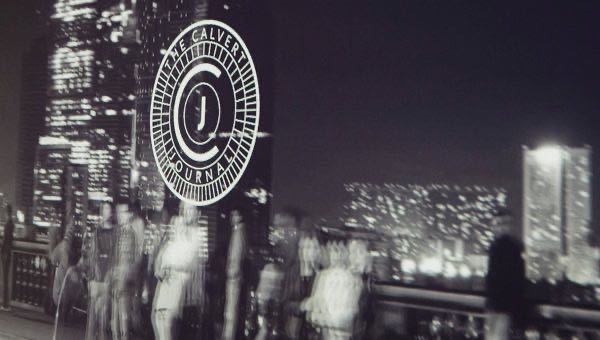
On these sites, in short, we find critical news analyses and reports, exhibition updates, interviews with leading creative professionals from Russia and abroad, and, finally, full texts or fragments of texts by literary classics, contemporary authors, and non-fiction writers and thinkers.
For this overview I tried, but failed to kill these various darlings. Then I decided against singling out one particular site. It is, after all, precisely the simultaneous co-existence of these and related online platforms that illustrates how Russian literary and journalistic writing flourish in digital media.
Together, these examples demonstrate, I think, that present-day Russia is not the enormous Putin-focused circus into which mainstream Dutch press coverage often moulds it. While Kremlin officials are crafting sad new laws and falsifying elections, elsewhere in Russia professionals in journalism and the arts are busy materializing very different goals.
Two separate worlds?
This same overview triggers an important critical question. This is the question: how does the world of official Russian culture relate to the world that we are looking at here, which is often framed in terms of 'non-official,' 'underground,' or 'alternative' cultures? How do these worlds relate to one another? And can we even speak of two separate worlds?
The answer to this last question is, ofcourse: no, we can't. Traditionally, Russia experts did often tell us that we can. The (in itself very solid) Cambridge history of Russian literature edited by Charles Moser, for instance, implies that we can neatly divide between official and underground Russian writers and thinkers; or between a 'dark,' repressed Soviet era and a 'light,' free post-Soviet epoch.
Recently, experts of late Soviet and post-Soviet Russia have become more cautious in framing Russian history in such clean-cut oppositions. This influential study from 2006, by Berkeley-based anthropologist Alexei Yurchak, pleas for a move away from 'binary accounts that describe [the] system as a dichotomy of official culture and unofficial culture, the state and the people, public ... and private self, truth and lie.'
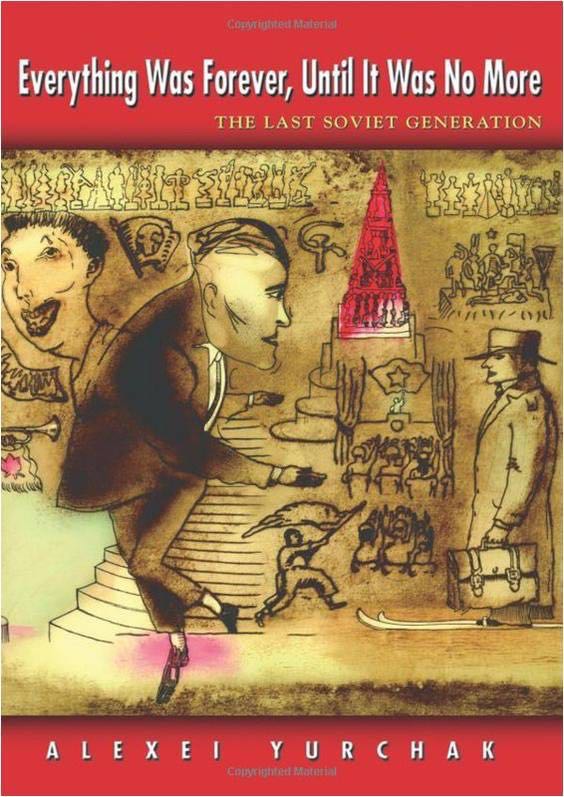
Yurchak is talking about the late Soviet era, but his claims also hold true for contemporary Russia -- and for the initiatives that we just saw.
These are equally hard to grasp in a language of neatly delineated oppositions. Its founders do not shun critical political debate; many of their contributors are not exactly Putin fan club members; and they do not always benefit from the Kremlin's latest policy twists and turns. At the same time, these critical initiatives do persist, in plain public view. Some of their founders and makers are in terribly precarious economic positions. Others manage more or less. Yet others earn satisfactory to lush salaries. Some are downright activists. Some simply don't care about politics. Others have no downright activist interests, but do occasionally go to protests or use Twitter to curse the authorities, and are left untouched by Kremlin officials. Some do get into politically motivated trouble -- and ofcourse, journalists of the critical online TV site Dozhd are more likely to land in difficult situations than, say, Lumpen models. But the pattern is not always predictable. Others have ties within the Kremlin or support Putin and occupy a respected position within critical intellectual circles. And if this is beginning to sound confusing, let me heighten that confusion by adding that some of these initiatives -- including the more critical among them - are funded by state institutions.
Rather than solving this confusing picture, I propose that we let it linger.
What we discuss, if we talk about the New Literary Observer, Lumpen, and the other initiatives that I clustered here, we can, perhaps, metaphorically call 'notes from the underground', but only if we steer clear of clean-cut under- versus above-ground divisions.
Ellen Rutten made these remarks as an introduction to the program Russia Report: Notes From The Underground, October 15 2016 in De Balie in Amsterdam, organised together with Dutch Culture. Participating were a.o. the publisher of the New Literary Observer Irina Prokhorova and the poet and journalist Linor Goralik. For a link to the videorecording of the evening click here.
